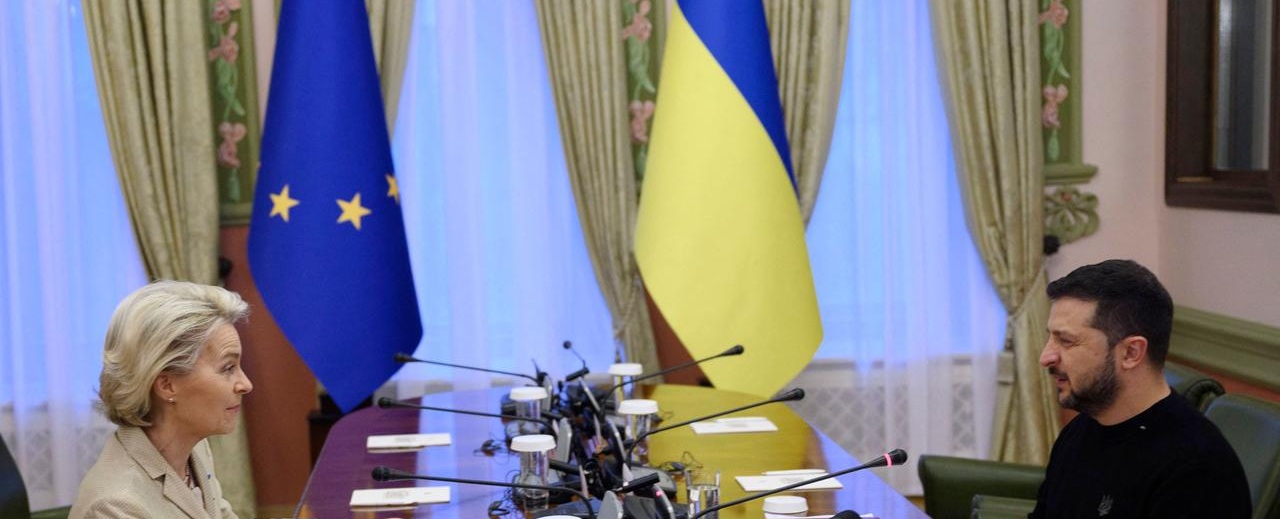Ukrainian President Volodymyr Zelenskyy has publicly denied recent reports claiming he was in contact with European Commission President Ursula von der Leyen regarding Ukraine’s controversial new anti-corruption law reform.
This clarification comes amid rising tensions between Kyiv and Brussels.
It follows legislation signed by Zelenskyy that critics say undermines the independence of two key anti-corruption agencies in Ukraine: the National Anti-Corruption Bureau of Ukraine (NABU) and the Specialized Anti-Corruption Prosecutor’s Office (SAPO).
The controversy erupted after the Ukrainian parliament approved a bill modifying the oversight structure of NABU and SAPO.
It brought them under the direct supervision of the prosecutor general, a political appointee.
This change effectively allows the prosecutor general to select and reassign cases, which has raised serious concerns about the potential for political interference in anti-corruption investigations.
Many of these investigations are reportedly sensitive and high-profile.
Critics argue that the law jeopardizes the agencies’ autonomy and independence, which are crucial for maintaining integrity in Ukraine’s ongoing fight against corruption.
Ursula von der Leyen’s office initially indicated that she had called Zelenskyy to express “strong concerns.”
It also said she called to request explanations about the implications of the legislation on Ukraine’s commitment to the rule of law, which is central to its European Union accession aspirations.
The European Commission emphasized that respect for the rule of law and anti-corruption efforts are non-negotiable for Ukraine’s EU candidacy.
Remarks from the Commission suggested this was their first critical engagement with Zelenskyy since the onset of the war with Russia.
However, Zelenskyy rejected the claims that such a conversation took place.
During a press meeting on July 25, 2025, Zelenskyy declared the reports about any recent call or explanation requested by von der Leyen as “fake” and false.
He stated explicitly, “I have not spoken with Ursula von der Leyen in recent days.
Everything that was written about this, everything she supposedly told me, is fake.
We did not have a conversation.”
This denial aimed to dispel confusion and rumors amid a politically charged atmosphere surrounding the anti-corruption law and Ukraine’s relations with the EU.
The new anti-corruption legislation triggered widespread backlash domestically in Ukraine, sparking protests in Kyiv and other cities.
Demonstrators urged Zelenskyy to veto the law, highlighting public anxiety over setbacks in Ukraine’s anti-corruption reforms.
Opposition voices, civil society groups, and EU officials have warned that weakening the independence of key watchdogs could undermine Ukraine’s democratic progress.
They warn it could also damage its credibility with Western partners.
In response to the criticism, Zelenskyy and law enforcement agencies have moved to introduce a draft bill aimed at strengthening the independence of these anti-corruption bodies.
This signals an acknowledgment of the concerns raised and a possible path toward compromise.
The background to this tension includes recent investigative actions against employees of NABU and SAPO by Ukrainian security services.
The security services allege infiltration and influence by Russian intelligence within these institutions.
These developments partly motivated the legislative adjustments intended to “cleanse” the agencies, according to Ukrainian officials, although critics argue that such steps threaten systemic accountability.
In summary, European Commission President Ursula von der Leyen’s office initially indicated direct contact with Zelenskyy to address Western concerns over Ukraine’s anti-corruption law reforms.
On the otherhand, Zelenskyy firmly denied such communications had occurred.
The situation underscores the delicate balance Ukraine faces in maintaining robust anti-corruption measures while managing domestic political pressures and preserving crucial support from European allies during a protracted conflict and EU accession process.
This report synthesizes verified information from recent credible sources including Euronews, Euractiv, Eurointegration, Euromaidan Press, Pravda Ukraine, and related media publications as of July 2025.







